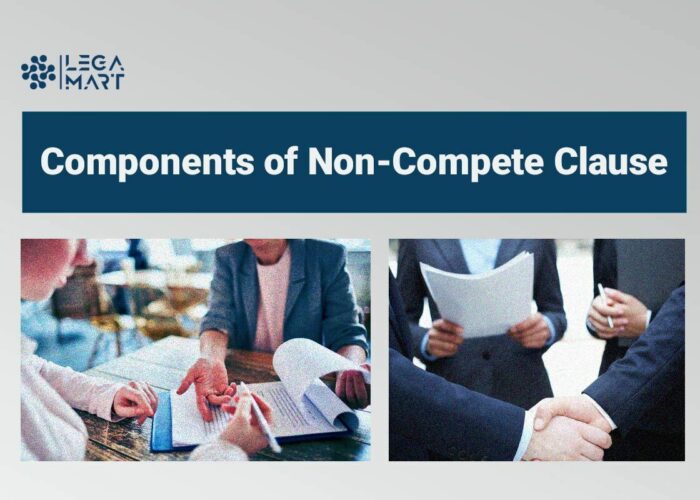Introduction
Mr Graham is a highly skilled employee who is well-equipped with insider information. Mr. Graham decided to part ways with his current employer. However, instead of a graceful exit, he decided to embark on a rival venture, capitalizing on the knowledge and connections that he acquired while working within the company. Unexpectedly, a new competitor emerged, ready to lure away clients, seize market share, and challenge the already-established order.
This situation poses a significant threat to any company seeking to uphold its competitive advantage. However, there is a beacon of hope in this tale of corporate warfare—the Non-Compete Clause. It acts as a heroic figure, a contractual protector steadfastly committed to safeguarding the essential interests of businesses, regardless of their size, in the relentless competition of the business world.
So, what exactly does a Non-Compete Clause entail? Simply put, it is a legal rule that prevents employees from engaging in activities that directly compete with their current employer. This restriction applies not only during their employment but also for a specified period after they part ways with the company. These clauses have gained widespread recognition for their effectiveness in shielding businesses from potential harm, as they curtail the spread of sensitive information, maintain customer loyalty, and preserve the distinctive qualities of a company’s offerings.
Of course, critics have argued that such clauses limit job mobility and hinder innovation. However, supporters emphasize their undeniable role in fostering an environment encouraging growth, investment, and risk-taking. Non-compete clauses protect against unfair competition and create a safe space where entrepreneurs can fearlessly pioneer groundbreaking ideas. Moreover, they can do so with the assurance that their investments and intellectual property will be shielded from exploitation.
So, what precisely are non-competition provisions, and how do they affect employees and companies? The purpose, legality, and potential downsides of non-compete agreements will all be covered in this blog post. So whether you’re an employer or a job seeker, keep reading to discover more about this contentious subject.
Non-Competition Clause Explained
A non-competition clause, also called a non-compete clause or restrictive covenant, is a clause between an employer and an employee that limits the employee’s ability to work for a rival organization or launch a rival business for a specific time after leaving their current position. This clauses often list the businesses or activities in which the employee is prohibited from working, along with the areas where the prohibitions are in effect.
A non-compete clause often incorporates restrictions that forbid employees from starting a rival firm or working for a competitor within a specific geographic region after quitting their position. The type of firm and the employee’s specific work responsibilities will determine the non-compete clause’s geographic reach and length.
Purpose of Non-Competition Clause
Restrictive covenants safeguard a company’s commercial interests by restricting workers’ capacity to engage in business rivalry with the organization after leaving their job. These clauses often outline a specific time frame and region where the employee is barred from working for a rival company or launching a rival enterprise. The following are the primary purposes of Non-competition provisions:
- By preventing former workers from exploiting that information to their advantage, they safeguard the business’s trade secrets and sensitive information.
- They help businesses keep hold of their best employees.
- They can stop ex-employees from stealing the business’s clients or workers.
Usage of restrictive covenants Clauses
They are frequently a part of partnership arrangements, sales of business agreements, and employment contracts. Restrictive covenant provisions are often used in various sectors, including manufacturing, healthcare, finance, and technology. Employers can limit their workers’ capacity to work for a rival and stop them from releasing confidential information by putting non-compete clauses in employment contracts. Agreements for the selling of a firm may also contain non-compete clauses. When a company is sold, the new owner should ensure the outgoing owner doesn’t launch a rival company or work for one. The new owner can defend the company’s interests by incorporating a non-compete clause in the selling agreement. Contracts between businesses may also contain non-competition provisions, particularly when one firm supplies services to another.
Components of Non-Compete Clause

Non-compete clause prevent an employee from starting a rival firm or working for a competitor for a predetermined amount of time after leaving their present position. These clauses often include several parts intended to safeguard the employer’s interests and guarantee that the employee won’t take any actions that might harm the business. Below are mentioned the main components of such clauses:
- Geographic Scope: This element outlines the areas where an employee is not permitted to work for a competitor or launch a rival company. The kind of business and the employee’s specific work responsibilities often define the non-compete provision’s geographic extent.
- Duration: The period that an employee is forbidden from competing with their present employer or business is referred to as the non-compete provision’s lifespan.
- Industry or Business Limitations: The non-compete clause could also restrict the kind of business or sector the employee cannot operate in. The sort of business or sector that the employee is not allowed to work in after leaving their present position is specified in this component.
Enforceability of Non-Compete Covenant Clause

Depending on the particular facts of the case, non-competition provisions’ validity might vary significantly from state to state and even within states. Some states have restricted or outright outlawed non-competition provisions in employment contracts and other agreements, despite numerous jurisdictions permitting their use.
Non-competition clauses are strongly opposed by several jurisdictions, including California, which has passed legislation outlawing or severely restricting their use.
Non-compete clauses are often unenforceable in California, with few exceptions, such as when a firm is sold, or a partnership dissolves. Some states have outlawed non-competition provisions, including North Dakota and Oklahoma. Non-competition agreements’ enforceability in other states may be influenced by several variables, including their term and breadth, the nature of the employer’s industry, and the employee’s work responsibilities. Non-competition agreements, for instance, are typically enforceable in Illinois, provided they are fair in length and geographic reach and are required to safeguard the employer’s genuine business interests.
Non-Compete Clause Examples
Non-compete clause is one of the crucial clauses in the contracts and agreements employee should know about. These provisions restrict workers’ or contractors’ capacity to work for or launch competitive enterprises to safeguard the employer or company. A few instances of non-compete agreements are shown below:
- You undertake not to conduct any business or activity that competes with the company’s operations in any region where the company conducts business while you are employed there and for 12 months following the termination of your employment.
- The contractor consents to refrain from rendering services to any client or customer of the company who is or turns into a rival for the term of this agreement and a year following its termination.
- Seller agrees that, for three years after closing this sale, Seller will not engage in any business that competes with the business being sold in the United States.
It’s crucial to obtain legal counsel if you encounter a non-compete clause in an employment agreement and are having trouble comprehending its ramifications or wording. A Legamart lawyer may assist you with reviewing and negotiating the agreement’s provisions, explaining how they may affect your possible career opportunities, and providing advice on whether the clause is enforceable where you live. Legamart offers the best solution for your issues with non-competition agreements. They have a network of excellent lawyers who can help you get started and provide professional guidance on such clauses. Legamart offers various services, such as quick meetings with lawyers to discuss legal problems or obtain advice on business transactions or any other legal matter. Depending on your requirement, you can choose from a dozen lawyers in the directory of Legamart.
Current Position of Non-Competition Provisions
Several countries, including the United States, have non-compete clauses. In a recent announcement, the Federal Trade Commission said that non-compete agreements violate Section 5 of the Federal Trade Commission Act because they are an unfair way of competition.
Non-compete clauses are often only regarded as enforceable in the European Union, provided they are fair in scope, length, and geographic reach. Non-compete clauses are only enforceable if the employee is paid throughout the non-compete term in some member states, such as Germany. Non-compete clauses are typically forbidden in other EU members, with few exceptions, such as France.
The non-compete restriction is also common throughout Asia. However, they are subject to tight restrictions in some nations. Non-compete clauses, for instance, are only enforceable in China if the employee receives remuneration throughout the clause’s existence and its scope, length, and geographic reach are acceptable. Although largely enforceable in Japan, non-compete clauses are subject to the same restrictions as in the EU.
Conclusion
Non-compete agreements are crucial for organizations to safeguard their vital commercial interests, including trade secrets and clientele. A carefully drafted and fair non-compete provision may benefit the company and its employees, fostering a vibrant and competitive market.
Employees subject to a non-competition clause may face significant limitations on their ability to find new employment in their field, mainly if the clause is broadly written or has a long duration. However, employees can often negotiate the terms of the clause with their employer or seek legal advice to understand their options better.
Frequently Asked Questions
Can a worker question the legality of a non-compete clause?
Ans. Indeed, a worker has the right to contest the validity of a non-compete agreement. Non-compete agreements can be contested by employees on the grounds that they are too broad, unjustified, or lack a genuine commercial interest. If the clause’s scope or length is unreasonable, an employee may also contest it.
Are only high-level employees subject to non-compete clauses?
Ans. No, entry-level employees are not exempt from the application of non-compete provisions. However, the capacity of low-level individuals to find employment in their desired area may be more significantly impacted by non-compete provisions. Hence courts may be more inclined to invalidate these clauses.
What happens if an employee violates a non-competition clause, and what are the potential consequences?
Ans. The employer may pursue legal action against an employee who disobeys a non-competition provision. Financial losses, an order prohibiting the employee from working for a rival company, and sometimes even criminal charges can occur.
Are there other ways employers can safeguard their business interests besides non-competition clauses?
Ans. Non-disclosure agreements (NDA), non-solicitation clauses, and non-poaching agreements are a few more options employers have to safeguard their company interests. Similar safeguards to non-competition provisions may be offered by these agreements, but there would be no restrictions on an employee’s freedom to work in their industry.




